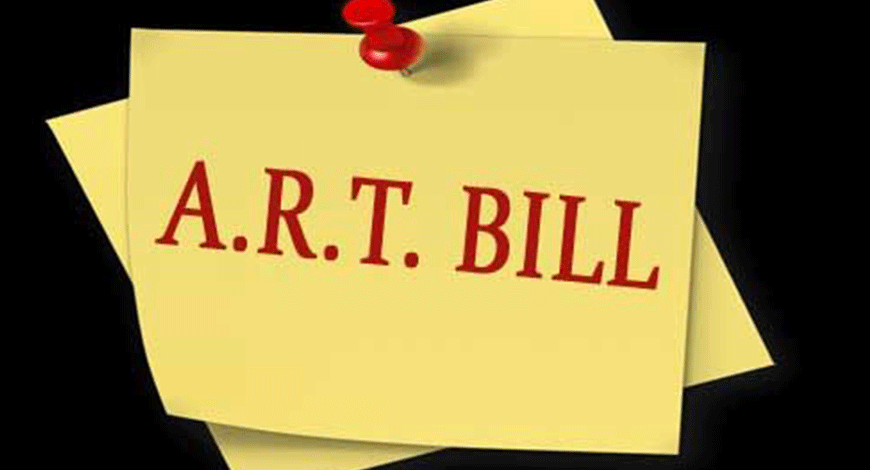ASSISTED REPRODUCTIVE TECHNOLOGY (REGULATION) BILL, 2020
- The Indian Council of Medical Research drafted the first draft of a law to govern the massive fertility treatment sector in 2008. (ICMR).
- The Assisted Reproductive Technology (Regulation) Bill, 2020, was tabled for discussion by the Lok Sabha after numerous twists and turns.
- The Assisted Reproductive Technology (Regulation) Bill of 2020 aims to establish standards in the reproductive business and bring consistent costs in.
What is ART
- All methods for obtaining a pregnancy include handling sperm or an oocyte (immature egg cell) outside the human body and transferring the gamete or embryo into a woman's reproductive system.
- ART includes Gamete (sperm or oocyte) donation, in-vitro-fertilisation (fertilising an egg in the lab), and gestational surrogacy (the child is not biologically related to surrogate mother).
- ART services will be supplied by
- ART clinics that conduct ART-related treatments and procedures.
- ART banks that store and distribute gametes.
Regulation of ART clinics and banks
- According to the bill Every ART clinic and bank must be registered with the National Registry of Banks and Clinics of India.
- The Bill establishes the National Registry, which will serve as a single database containing information on all ART clinics and banks in the country.
- To make the registration procedure easier, state governments will appoint registration authorities.
- The registration will be valid for five years, with the option to renew for another five.
- If an entity violates the Bill's terms, its registration may be revoked or suspended.
Objectives of the bill
- Regulate ART services and safeguard women and children from exploitation.
- To safeguard egg donors from repeated embryo implantation by providing insurance coverage (due to the health risks involved for mother and child).
- To ensure that children born through ART have the same rights as biological children.
- Regulate ART banks' cryopreservation (cold storage) of sperm, eggs, and embryos.
- Make preimplantation genetic testing a requirement for children born through assisted reproductive technologies.
- To verify that ART clinics and banks are properly registered.
Conditions for gamete donation and supply
- Only a recognised ART bank is allowed to screen gamete donors, collect and store semen, and provide oocyte donors.
- Males between the ages of 21 and 55 can donate semen, while females between the ages of 23 and 35 can donate oocytes.
- A woman can only contribute one oocyte once throughout her life, and she can only have seven oocytes extracted from her.
- An oocyte donor should be an Ever-married lady with at least one living child (minimum three years of age).
- A single donor's gamete cannot be sent to more than one commissioning couple by a bank (couple seeking services).
Rights of a Child born through ART
- A child born via ART will be considered the commissioning couple's biological child and will be entitled to all of the rights and privileges that a natural child would have.
- A donor will not be able to exercise parental authority over the kid.
National and State Boards
- The National and State Boards for Surrogacy, established under the Surrogacy (Regulation) Bill, 2019, would regulate ART services at the national and state levels, respectively.
- Boards will advise the central government on ART policy issues.
- Boards will Review and monitor the Bill's implementation.
- Boards will develop a code of conduct and standards for ART clinics and banks.
- Boards will supervise various bodies to be established under the Bill.
Offences under the Bill
- Abandoning or exploiting children who are born as a result of ART.
- The sale, purchase, trade, or import of human embryos or gametes.
- Obtaining donations through intermediaries.
- In any way abusing the commissioning couple, woman, or gamete donor.
- Implanting a human embryo in a male or animal.
Penalties under the Bill
- For the first violation, these offences will be penalised by a fine of between five and 10 lakh rupees.
- Any clinic or bank that advertises or offers sex-selective ART would face a sentence of five to ten years in prison, a fine of Rs 10 lakh to Rs 25 lakh, or both.
- No court will take cognizance of offences under the Bill unless the National or State Boards or any officer authorised by the Boards file a complaint.


